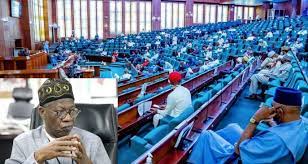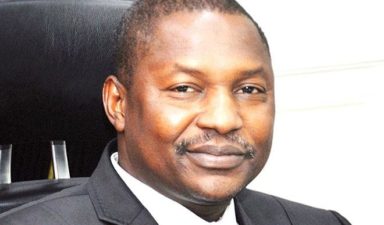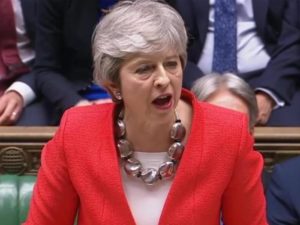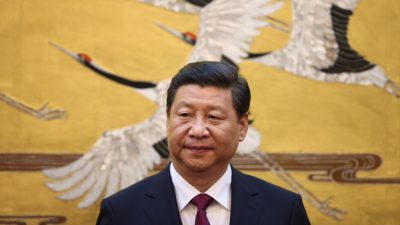Presentation By The Minister of Information and Culture to the House of Representatives Joint Investigative Committee on Twitter Suspension
Notes on the lawful Ban on Twitter in Nigeria
*Public Interest takes precedent over individual interest
Section 45(1) of the 1999 Constitution (as amended) is to the effect that:
“45 (1) Nothing in Sections 37, 38, 39, 40 and 41 of this Constitution shall invalidate any law that is reasonably justifiable in a democratic society:
- In the interest of defence, public safety, public order, public morality or public health or;
- The purpose of protecting the rights and freedom of other person”
The above provisions of Section 45 of the Constitution leave no one in doubt that the provisions of Section 39 of the Constitution on Freedom of Expression is not absolute. The right to free expression within the contemplation of Section 39 makes it a qualified right in light of the aforementioned Section 45, which permits restrictions of civil liberties in the public interest. In the circumstance the provisions of Section 3 of the National Security Act, which clothes the State Security Services (SSS) with the powers to preserve the internal security of Nigeria is instructive, as it provides a lawful basis for the Federal Government to maintain that the ban of Twitter was pursuant to the security reports of the SSS in this regard.
For clarity, Section 3 of the National Security Act reads:
(3) The State Security Service shall be charged with responsibility for-
(a) the prevention and detection within Nigeria of any crime against the internal security of Nigeria;
(b) the protection and preservation of all non-military classified matters concerning the internal security of Nigeria; and
(c) such other responsibilities affecting internal security within Nigeria as the National Assembly or the President, as the case may be, may deem necessary.
(Underlined is ours for emphasis)
Furthermore, the rights to Freedom of Expression on the Twitter platform is further qualified by Section 45 of the Constitution in light of the provisions of Section 5(1) and (2) of the Terrorism Act of 2011. For clarity, the section reads:
Any person who knowingly in any manner directly or indirectly solicits or renders support:
“1 (a) for the commission of an act of terrorism; or
(b) to a terrorist group, commits an offence under this Act and is liable on conviction to imprisonment for a term of not less than twenty years
2 For the purposes of sub section 1 of this section, “support” includes:
(a) incitement to commit a terrorist act through the internet or any electronic means or through the use of printed materials or through the dissemination of terrorist information”.
Furthermore, Section 14(2)(b) of the Constitution provides that the security and welfare of the people shall be the primary purpose of the government.
*CAMA’s POSITION: TWITTER NOT LICENSED TO DO BUSINESS IN NIGERIA
- The primary law governing businesses in Nigeria is the Companies and Allied Matters Act, 2020 (the Act). As it regards that operation of a foreign companies in Nigeria, the law provides that a foreign company which fails to take necessary steps to obtain incorporation as a separate entity in Nigeria for that purpose, but until so incorporated, the foreign company shall not carry on business in Nigeria or exercise any powers of a registered company. See Section 78 (1) Companies and Allied Matters Act, 2020. Hence, flowing from this background a foreign Company as Twitter cannot be clothed with the legitimate rights to operate as a company registered in Nigeria, as they are not licensed accordingly.
- PERSONAL LIBERTY CAN BE SUSPENDED WHEN THE INTEREST/RIGHTS OF THE MAJORITY IS AT STAKE
- Notwithstanding the foregoing, it is also observed that the operations of Twitter in the Nigerian social space is not legally permissible when it is used in airing of information that endangers the life and security of the majority of citizens of Nigeria. The principles of law are clear on the exercise of personal human rights in the face of National security threats which affects the larger citizen.
THE REQUISITE LEGAL BACKING FOR THE FEDERAL GOVERNMENT OF NIGERIA, TO PROTECT OUR CYBER SPACE.
THE COMBINED EFFECT OF THE FOLLOWING PROVISIONS VIZ:
ARTICLE 24,25 AND 26 OF AFRICAN UNION ON CYBER SECURITY AND PERSONAL DATA PROTECTION.
ARTICLE 19(2) AND (3) OF THE INTERNATIONAL COVENANT ON CIVIL AND POLITICAL RIGHTS (ICCPR)
SECTION 1, 2, 3 AND 4 OF THE CYBER CRIMES (PROHIBITION AND PREVENTION E.T.C.) ACT.
- Empowers the Federal government of Nigeria to regulate and promote the security of the Nigerian Cyber space, including but not limited to:
The cyber environment and organization and user’s assets. Organization and user’s assets include connected computing devices, personnel, infrastructure, applications, services, telecommunications systems, and the totality of transmitted and/or stored information within the Nigerian cyber-Space/environment (including social media such as Twitter, Facebook…, applications, internet platforms, and cloud computing platforms)
- Furthermore, the Federal Government of Nigeria is empowered to take all necessary measures, give all necessary Orders designating any computer system, network or application as forming part of our national infrastructure, and take all necessary steps, (including suspension of Twitter or any other social media) to protect Nigeria’s critical infrastructure from a cyber-Threat or attack.
- Following the above, the Federal Government of Nigeria is further empowered to take all reasonable steps to defend its cyber space where it perceives or finds that a Cyber-crime, is threatened to be committed, has been committed, or is being committed on and through its cyber space. For instance, where a seditious act has been committed against the Federal Government through the Cyber Space. (See Section 51 (2) of the Criminal Code which punishes the crime of sedition). In the circumstance, the decision of the Federal Government to ban the activities of Twitter for being a national security threat is well founded in law in light of the fact that the platform affords IPOB, an organisation already proscribed by the Federal High Court, to champion its seditious and terrorist based activities.




